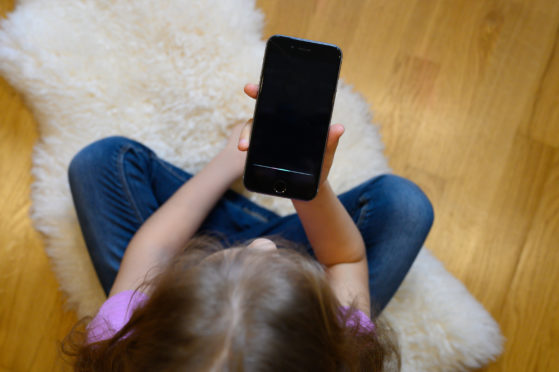
The majority of children now own a mobile phone by the age of seven, according to a study.
The devices have become a fundamental part of life for most young people, it indicates, with many admitting they are fearful of being without their phone and significant proportions sleeping with it by their bed.
Overall, children now spend around three hours and 20 minutes each day messaging, playing games and being online, the report by Childwise found, down slightly on last year.
Mobiles are the device youngsters are most likely to use to access the internet, it says.
Researchers said the findings show the extent to which phones can “dominate children’s lives”.
The report, which is based on a survey of 2,167 UK five to 16-year-olds, claims that 53% of youngsters are now mobile phone owners by around the age of seven.
It goes on to say that by age 11, nine in 10 (90%) have their own device, and once children are in secondary school, phone ownership is “almost universal”.
Almost two in five (39%) of those questioned said they could not live without their phone – up from 33% last year.
Teenagers aged 15 and 16 are most concerned about being without the technology, the report found.
More than half (57%) of all the children surveyed said that they always sleep with their phone by their bed, while the same proportion admitted they do not know what they would do if they lost their device.
And just under half (44%) said they would feel uncomfortable if they are somewhere without phone signal, while 42% admitted to being “constantly worried” about running out of charge.
Simon Leggett, research director at Childwise, said it can be difficult for mothers and fathers to parent children’s use of technology as “the mobile phone is such a private and personal technology”.
“The moment a child owns a mobile phone, it can be a challenge to monitor what your child is accessing online because it’s such a private technology that most keep, literally, close to their chest,” he said.

Enjoy the convenience of having The Sunday Post delivered as a digital ePaper straight to your smartphone, tablet or computer.
Subscribe for only £5.49 a month and enjoy all the benefits of the printed paper as a digital replica.
Subscribe